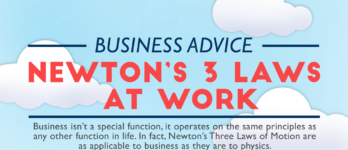
Entrepreneurs tend to be action oriented with an urgency to “get it done” and see progress. However, we often fail to take the initial steps necessary to assess the idea and the market.
Entrepreneurs like action. When we have an idea, we want to jump in and immediately begin the process of building the company. We’ll develop an organizational structure, begin branding and establishing logos, and create a pitch deck for discussions with investors. However, we often fail to ask the initial questions necessary to assess the idea and the market. For example:
- Does the idea resolve a customer pain point?
- If so, will the customer see value in it? Is the market significant enough to pursue?
- Are there existing alternative solutions in the marketplace?
- What are your personal skills and how do they relate to entrepreneurship and the envisioned solution? What skill gaps exist?
Following are 5 steps entrepreneurs should take before formally establishing their company:
1. Define Pain Point & Develop Problem Statement
A Pain Point is the emotion the consumer experiences when they think of a specific problem, struggle, weakness, or need that does not have a solution. A Problem Statement is a short description of the customer’s need and the entrepreneur’s solution(s) to that problem. Once the pain point is clearly defined, you can construct a concise problem statement which can be researched and tested during customer discovery.
2. Complete Customer Discovery Process
Customer Discovery is the process of identifying your target customers. During the customer discovery process, the entrepreneur will learn more about the problem their startup will solve, the method for solving the problem, and the necessary means to obtain customer acceptance and adoption of the entrepreneur’s solution. Customer discovery will provide the product/service validation necessary for the entrepreneur to pursue their venture.
3. Estimate Potential Market Size of Opportunity
Market Size is the volume (total number) of potential buying customers (individuals or businesses) within a specified market. When defined in terms of revenue, the market size is also known as the Total Addressable Market (TAM), or the Total Available Market. Understanding if the product applies to a niche market vs. the general population will affect the journey of the startup.
4. Identify Critical Skills & Technologies Required
The development of the startup’s prototype, MVP, and commercial product or service will likely require Critical Skills and Technology Capabilities. These must be available internally or outsourced on a purchase or contract basis.
How to Launch a Tech Startup If You are a Non-Technical Founder [Infographic]
5. Estimate Cost of Development & Cost of Production
The Estimated Cost of Development and Production consists of 2 elements:
1.) the estimated cost related to the development of the startup’s product or services offering
2.) the estimated variable or incremental cost of each additional unit of production or service provided
The estimated cost of development usually includes the development of the product/service on an element by element basis. This estimate includes ALL input elements (materials, labor, services, other) in addition to costs related to initial ideation, research and development, prototyping and development of a Minimum Viable Product, (MVP).
The estimated cost of production includes an element by element estimate of the incremental unit cost of the product/service. This cost of production is significantly less important for software, SaaS, and technological scalable products. Regardless, costs related to scaling (such as servers and related operating costs) are factors to consider.
The startup will face numerous risks as it develops its product or service for the marketplace. Those risks include design risk, development risk, capability risk, procurement risk, operational risk and legislative risk, to name a few.
Pursuit of these steps should provide the entrepreneur with the information needed to assess if their idea/solution will provide the foundation for a successful venture and take the idea from Concept to Startup.









